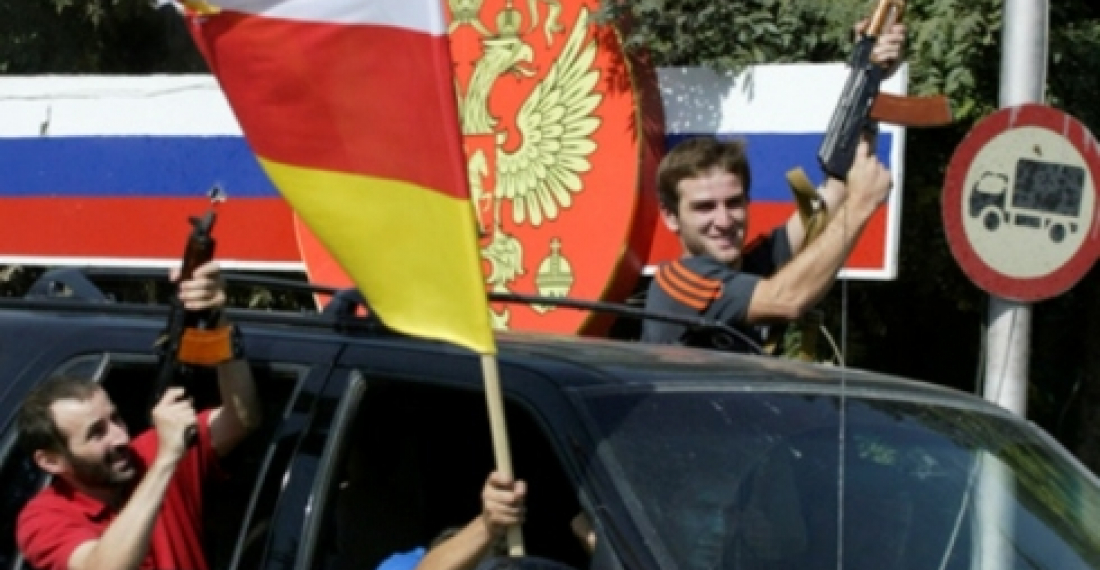The South Ossetians want unity with Russia, and they want it now. Even Mr Putin may not be ready for that. Joseph Alexander Smith reports from Tbilisi on the latest from the leadership of the self-declared republic.
South Ossetia's president, Leonid Tibilov, has announced his country's offer of full 'integration into the Russian Federation' in a move that has angered Tbilisi. The offer was made to Moscow as part of consultations on a new treaty to be signed early next year between Russia and the breakaway territory.
Speaking to South Ossetian news outlet RES on December 10, Tibilov said "I have made a proposal that the future treaty should be considered over the range of direct entry of the Republic of South Ossetia into Russia to other forms that exist today in the world. There are many forms of political coexistence of states. I think, we will soon get the answer to this question."
Tibilov's announcement comes less than a month after Georgia's other breakaway territory, Abkhazia, signed a "treaty on alliance and strategic partnership" with Moscow on November 24. Tskhinvali has cited a security threat from Tbilisi as a principle concern to be addressed by the new treaty.
"The Georgian side, despite the change of government, has changed nothing in its aggressive policy" Tibilov told RES. "There is an active rearmament of the Georgian armed forces. For Georgia, South Ossetia and Abkhazia are still the objects for a possible attack. As head of state, I am obliged to create conditions for our future generations to live in complete safety."
Tskhinvali's offer of integration with the Russian Federation drew strident condemnation from Tbilisi, with Foreign Ministry spokesman Davit Kereselidze slamming Tibilov's announcement as "destructive". Georgia's president Giorgi Margvelashvili accused Moscow of initiating the treaty for its own ends, saying on December 11 that "neither will the treaty ... strengthen the Russian ruble, nor will it increase oil prices. These problems won't be settled through signing the treaty with Tskhinvali."
The Kremlin, meanwhile, has rejected Georgia's complaints. "Relations between Russia and Abkhazia, Russia and South Ossetia - are relations between sovereign states" Russian Foreign Minister Sergei Lavrov said on December 5, ahead of the 30th round of Geneva talks which bring together Georgian, Russian, South Ossetian and Abkhaz representatives. "These relations are developed based on the principles of international law and infringe nobody's interests."
In November, the announcement that Abkhazia would be negotiating a new treaty with Moscow prompted accusations by the Georgian opposition that the government has softened its stance on Russia's "occupation" of its territories. A rally organized in Tbilisi by the opposition United National Movement (UNM) party of former president Mikheil Saakashvili brought thousands onto the streets to protest Russia's "annexation" of Abkhazia with some speakers labelling the government "collaborationist".
For Georgia, the signing of a new treaty would be yet another item to add its list of grievances against Tskhinvali and Moscow this year. Tensions escalated when a Georgian TV crew reporting from the administrative boundary line were briefly detained by Russian border guards for "violating the border of South Ossetia". Throughout May, Russian border guards detained a number Georgian villagers who had strayed across the administrative boundary while picking herbs.
On June 8, the territory held parliamentary elections in which acting Minister of Emergencies Anatoly Bibilov's United Ossetia party won a majority of seats in the 34 member assembly. United Ossetia had campaigned on a platform of 'reunification' with the Russian Federation, and promised voters a future referendum on this issue. Putin's special aide on relations with Abkhazia and South Ossetia, Vladislav Surkov, visited Tskhinvali later in June, but denied that there had been talk of a referendum.
Given the apparent appetite within South Ossetia for unification with Russia and the relatively speedy annexation of Crimea by the Russian Federation earlier this year, some analysts are asking if and when the Kremlin will follow suit with South Ossetia.
source: Jospeh Alexander Smith filed this report from Tbilisi for commonspace.eu
image: The Ossetian flag and the Russian flag are often seen flying together in Tskhinvali. The picture shows young Ossetians celebrating the victory over Georgia in the August 2008 war. (archive picture)







